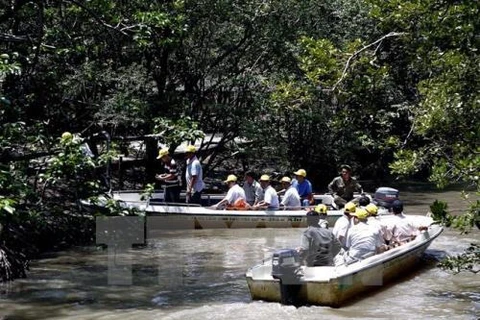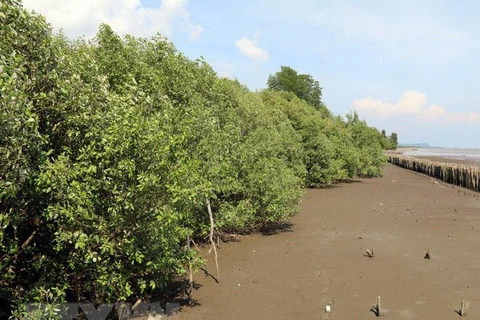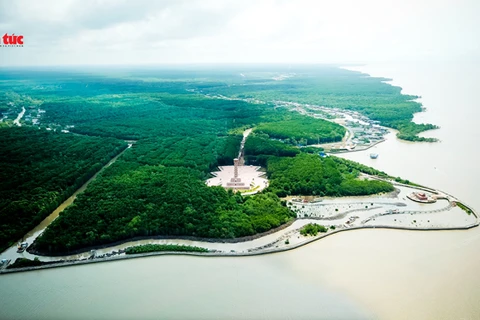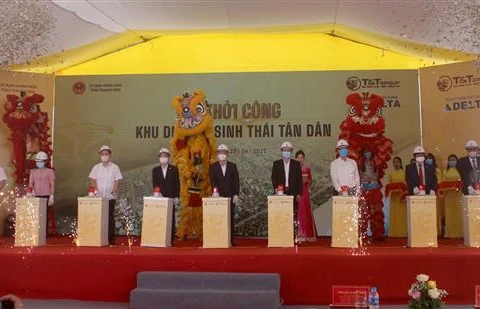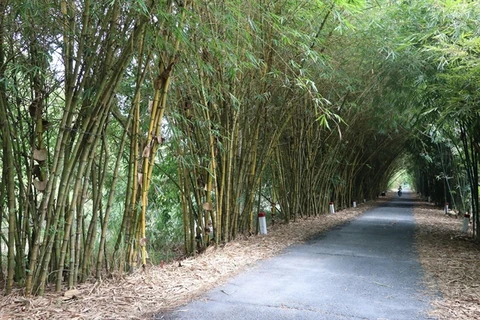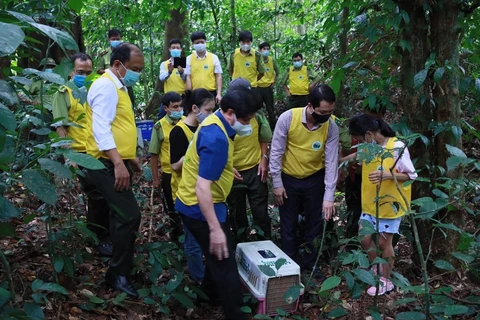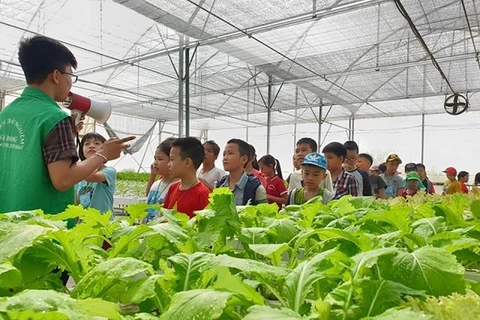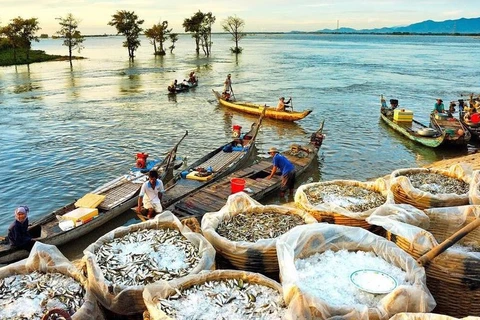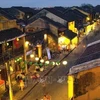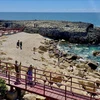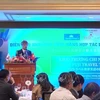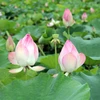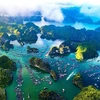Hanoi (VNA) – The COVID-19 pandemic has brought the world’s tourism industry to a complete halt, including ecotourism activities. However, the fact that protected areas are not open to tourists during this time also creates conditions for the natural ecosystem to recover faster, Deputy General Director of the Vietnam National Administration of Tourism (VNAT) Ha Van Sieu has said.
Speaking at a webinar entitled “Management in nature reserves and national parks” jointly held by the VNAT and the Colombian Embassy in Vietnam on September 28, he said it’s time for managers to come up with solutions to open up protected areas in a sustainable way.
The event was part of collaboration activities under a Memorandum of Understanding on tourism cooperation between the Vietnamese Ministry of Culture, Sports and Tourism and Colombia's Ministry of Trade, Industry and Tourism this year. It aimed to enhance mutual understanding on tourism of the two countries, helping to promote cooperation between the two countries.
According to the Vietnam Administration of Forestry, Vietnam currently has 33 national parks, 57 nature reserves, 13 habitat conservation areas, 53 landscape protection zones and 9 biosphere reserves. Among them, 61 national parks and nature reserves organise ecotourism activities.
Vietnam is ranked as the 16th most biodiversity rich country in the world with a variety of natural ecosystems, species and endemic genetic resources.
The system of special-use forests and protected areas in Vietnam is diverse in natural value and cultural tourism resources, facilitating the development of ecotourism. Ethnic minorities living in the buffer zones of the nature reserves with their unique features also attract the attention of tourists, according to the World Wildlife Fund (WWF).
Speaking at a webinar entitled “Management in nature reserves and national parks” jointly held by the VNAT and the Colombian Embassy in Vietnam on September 28, he said it’s time for managers to come up with solutions to open up protected areas in a sustainable way.
The event was part of collaboration activities under a Memorandum of Understanding on tourism cooperation between the Vietnamese Ministry of Culture, Sports and Tourism and Colombia's Ministry of Trade, Industry and Tourism this year. It aimed to enhance mutual understanding on tourism of the two countries, helping to promote cooperation between the two countries.
According to the Vietnam Administration of Forestry, Vietnam currently has 33 national parks, 57 nature reserves, 13 habitat conservation areas, 53 landscape protection zones and 9 biosphere reserves. Among them, 61 national parks and nature reserves organise ecotourism activities.
Vietnam is ranked as the 16th most biodiversity rich country in the world with a variety of natural ecosystems, species and endemic genetic resources.
The system of special-use forests and protected areas in Vietnam is diverse in natural value and cultural tourism resources, facilitating the development of ecotourism. Ethnic minorities living in the buffer zones of the nature reserves with their unique features also attract the attention of tourists, according to the World Wildlife Fund (WWF).
Acknowledging ecotourism as the key to poverty reduction and environmental protection, Vietnam has always given priority to its development strategy, Sieu said, adding that it has special significance in the context of tourism development after the COVID-19 pandemic is put under control.
Vietnam's tourism industry is striving to fully tap the potential to promote the development of eco-tourism, contributing to tourism recovery and development, and turn Vietnam into an attractive eco-tourism destination on the world’s tourist map, he said.
The VNAT official also emphasised that ecotourism activities have brought many positive results in terms of preserving natural ecosystems, preserving and enhancing cultural values, increasing incomes for local communities as well as raising awareness of the community and visitors about conservation efforts.
However, he said, the management and exploitation of tourism activities in these areas are still limited, while tourism products are still poor, and have not met the requirements of ecotourism.
Participants at the webinar shared policies and experience in the management of ecotourism activities in nature reserves and national parks. Ways to exploit natural resources efficiently and sustainably of protected areas for ecotourism activities were also discussed at the event./.
Vietnam's tourism industry is striving to fully tap the potential to promote the development of eco-tourism, contributing to tourism recovery and development, and turn Vietnam into an attractive eco-tourism destination on the world’s tourist map, he said.
The VNAT official also emphasised that ecotourism activities have brought many positive results in terms of preserving natural ecosystems, preserving and enhancing cultural values, increasing incomes for local communities as well as raising awareness of the community and visitors about conservation efforts.
However, he said, the management and exploitation of tourism activities in these areas are still limited, while tourism products are still poor, and have not met the requirements of ecotourism.
Participants at the webinar shared policies and experience in the management of ecotourism activities in nature reserves and national parks. Ways to exploit natural resources efficiently and sustainably of protected areas for ecotourism activities were also discussed at the event./.
VNA


